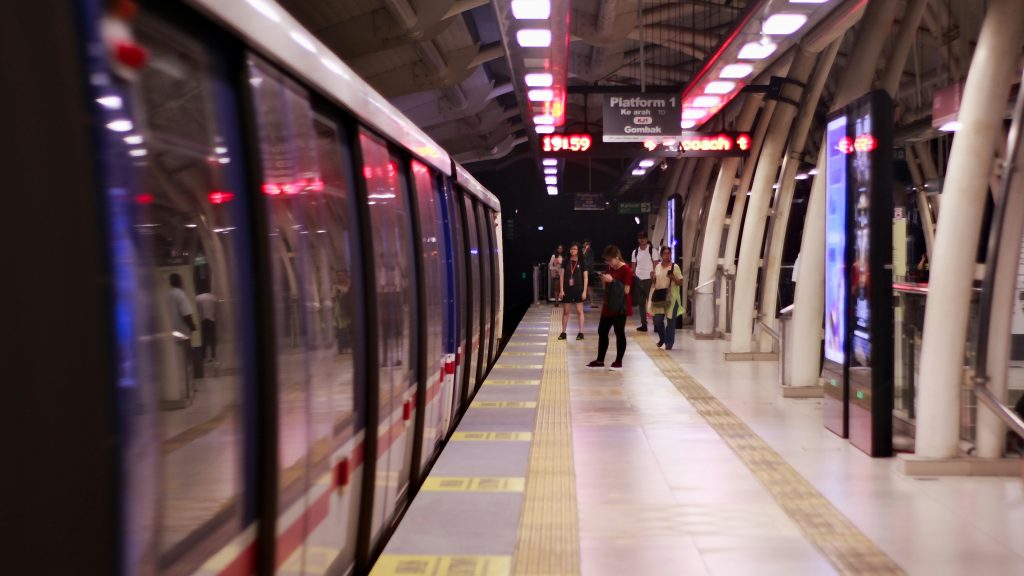
There’s no denying that the accessibility of public transportation in Malaysia, specifically rail-based transportation, has improved significantly across several decades.
For example, local PWDs – or more specifically, OKU card holders – have been able to enjoy access to LRT, MRT and Rapid Bus services around the Klang Valley, all without having to pay a fare since February this year.
Many other initiatives have also been implemented to make public rail transportation as accessible as possible, whether it be in terms of cost or distance.
Despite this, one could argue that some marginalised demographics, including PWDs, still face unnecessary challenges when utilising such services. Here are some reasons as to why such issues are still prevalent:
The Lack Of Reliable Data
Interestingly, last year’s official statistics indicate that only 1.9% of Malaysians are registered as disabled, However, multiple experts argue that this isn’t an accurate reflection of the actual number of disabled individuals in the country, but rather a case of significant under-reporting.
For instance, the National Health and Morbidity Survey (NHMS) in 2019 claims that more than 11% of Malaysians above the age of 18 have some form of disability.
It also claims that 1 in every 4 Malaysian adults, while not necessarily considered disabled, have some form of functional difficulty in one or more of the following domains: seeing, hearing, remembering, walking, self-care and communicating.
However, the lack of conclusive data, especially with regard to the number of registered OKU card holders, can be said to be a significant barrier that slows down the implementation of accessibility-related initiatives.
After all, accessibility for PWDs won’t be a focal point without greater transparency – and therefore awareness – on how prevalent disability actually is in the country.
The Inconvenience Of Rail Station Locations
There are dozens of rail stations within the Klang Valley, many of which are next to neighbourhoods and residential areas for the convenience of commuters.
That said, only around 20% of the area’s population utilise public transportation despite the relative affordability and increased availability.
This is arguably because despite the deceptively nearby access, many rail stations can be ironically difficult to reach. For many potential commuters, they’d likely have to cross several routes – some of which might be unpaved roads – then walk up stairs to an elevated crossing to get into the station itself.
This is hardly convenient for many PWDs, or even abled individuals in general, though this inconvenience is arguably a side effect of an infrastructure that prioritises utilisation of private vehicles over public transportation.
Such a bias isn’t unique to the Klang Valley, as many metropolitan areas across South East Asia seemingly share a similar focus on infrastructure.
Though the issues with location extend beyond this. According to a study on MRT stations in 2018, a significant amount of such stations were located between high-end neighbourhoods — in other words, locations that house people from Malaysia’s top 1% in income.
Such areas aren’t convenient for the general population, nor are they for a significant number of PWDs, especially considering that the latter group tend to fall under lower income brackets due to challenges associated with their disability.
Given that Malaysians gravitate toward owning private vehicles and the low registration of OKU card holders due to the stigma surrounding disability, such accessibility issues may remain difficult to address.
References
Ellyse McCallum (2020) 6 Reason Why Access to Transport is so Important [Accessed 8 July 2024] Available at: https://www.liftango.com/resources/why-access-to-transport-is-important
Nikki Natividad (2020) Malaysia Invested a Lot on Its Trains. Why Aren’t More People Using Them? [Accessed 10 July 2024] Available at: https://www.vice.com/en/article/y3gnnv/malaysia-train-mrt-traffic-public-transportation-problem
Malay Mail (2023) Nancy Shukri: Free public transport for PwDs will enhance their opportunities, accessibility [Accessed 10 July 2024] Available at: https://www.malaymail.com/news/malaysia/2023/12/21/nancy-shukri-free-public-transport-for-pwds-will-enhance-their-opportunities-accessibility/108651#google_vignette
OKU Rights Matter (2023) Malaysian Disability Data [Accessed 10 July 2024] Available at: https://okurightsmatter.com/malaysian-disability-data/